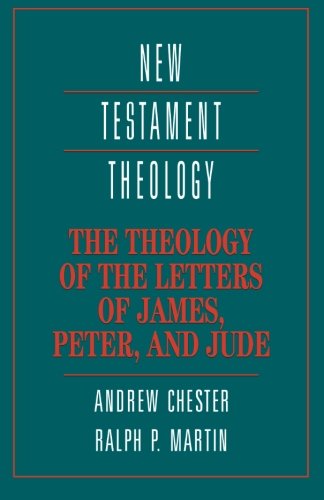
This series sets out to provide a programmatic survey of the individual writings of the New Testament. It aims to remedy the deficiency of available published material which concentrates on the New Testament writers' theological concerns. New Testament specialists here write at greater length than is usually possible in the introductions to commentaries or as part of other New Testament theologies, and explore the theological themes and issues of their chosen books without being tied to a commentary format, or to a thematic structure provided from elsewhere. When complete, the series will cover all the New Testament writings, and will thus provide an attractive, and timely, range of texts around which courses can be developed.
The letters of James, Peter, and Jude number among the most neglected parts of the New Testament. The authors of this study argue that the letters in question are more theologically significant than is often considered the case, and have a distinctive role to play in contemporary discussion of Christian faith. Andrew Chester sets James in context and discusses its main themes: eschatology, faith and works, ethical and social teaching; and (to a lesser extent) law, wisdom, human nature, ministry, God, and Christ. He addresses the problems that James has been seen to pose, in relation to Paul, for the canon and coherence of the New Testament, and points to the significance of James for the present day, especially in its attack on the rich and powerful and its demand for faith to be lived out in everyday life. Ralph P. Martin in turn shows how Jude and 1 and 2 Peter give insight into Jewish Christianity in its earliest development; how the Christian movement wasunderstood in an outlying region of the empire; and how the post-apocalyptic church utilized the memory of Peter for its practical needs. The resulting picture constitutes an expert and long-overdue treatment of these letters as valuable theological documents in their own right
The letters of James, Peter, and Jude number among the most neglected parts of the New Testament. The authors of this study argue that the letters in question are more theologically significant than is often considered the case, and have a distinctive role to play in contemporary discussion of Christian faith. Andrew Chester sets James in context and discusses its main themes: eschatology, faith and works, ethical and social teaching; and (to a lesser extent) law, wisdom, human nature, ministry, God, and Christ. He addresses the problems that James has been seen to pose, in relation to Paul, for the canon and coherence of the New Testament, and points to the significance of James for the present day, especially in its attack on the rich and powerful and its demand for faith to be lived out in everyday life. Ralph P. Martin in turn shows how Jude and 1 and 2 Peter give insight into Jewish Christianity in its earliest development; how the Christian movement wasunderstood in an outlying region of the empire; and how the post-apocalyptic church utilized the memory of Peter for its practical needs. The resulting picture constitutes an expert and long-overdue treatment of these letters as valuable theological documents in their own right



